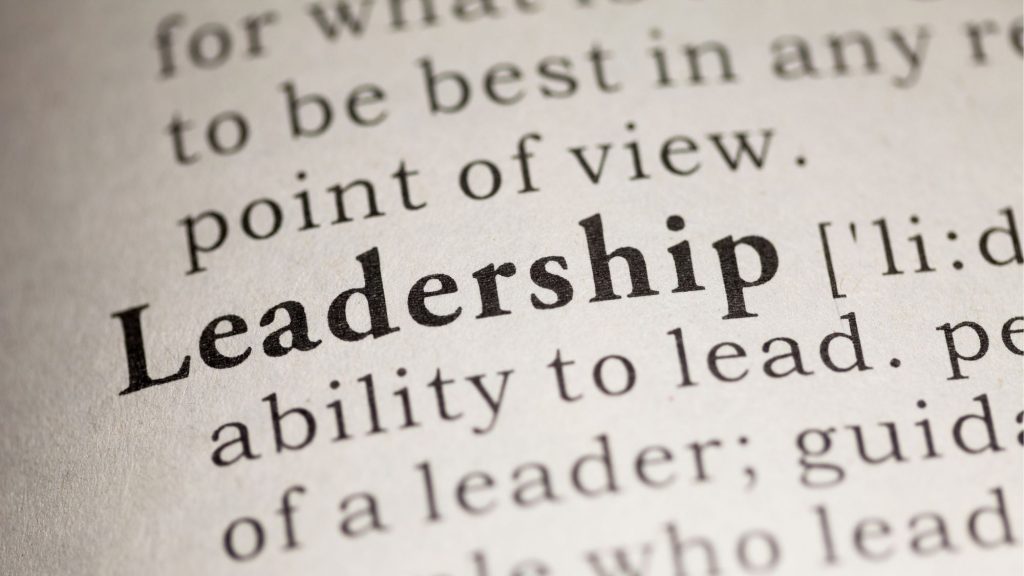South Africa’s esports scene is set for a major showdown as Hyprop and MTN introduce SHIFT COD, a Call of Duty tournament forming part…
What makes a great start-up leader? You’ll never guess!

What comes to mind when you think of a true leader? Is it a person with charisma or a high degree of intellect? Or a person possessing incredible warmth and compassion? More than 30 chief executives of innovative start-ups have their say about true leadership.
Although the perception or understanding of what makes a “leader” differs across societies and cultures, one common consensus is that any organization, even one as big as a country, can rise and fall solely on a leader’s capability. Past history and current events both provide an ample number of examples.
The world of start-ups is no exception. The leadership of a chief executive officer plays a crucial role in its destiny. As uncertainty prevails in nearly every aspect of business, it is like navigating through a dark jungle where there are an infinite number of unknowns and predators. To survive, start-ups need to find the right product-market fit, receive enough investments to sustain their organization, and gain an advantage over incumbents and competitors – to only mention a few. All these factors are a function of multiplication. If even one goes wrong, it is unlikely that the start-up will survive.
We asked more than 30 chief executives of innovative start-ups in the World Economic Forum Technology Pioneers community what their number one leadership trait while leading a hypergrowth start-up is. We also asked their thoughts on that specific trait, and key practices and habits they have put in place to foster the trait for each.
Here are the results:
1. Vision
Most technology pioneers see vision as the number one leadership trait. In a world abounding with uncertainties, a leader’s vision is an organization’s guiding star and focuses team members on the same goal. Having a strong vision that resonates with the team is crucial and acts as a go to place when confronting challenges. Some words that describe “vision” include “focal point” or the “first step towards any transformation”.
Sean Hinton, founder and Chief executive of SkyHive
“Vision is the focal point of any company solving a complex problem by proposing a new way of doing things. A leader with a clear and consistent vision is able to perpetuate perseverance in the face of resistance and to keep their company grounded as well as tied to the overarching purpose.”
Robin Grosset, chief technology officer at MindBridge Analytics
“Vision is the starting point of conceptualizing an idea. It provides continued direction and an objective for everyone to work towards.”
Jacqueline Heard, founder and chief executive of Enko Chem
“The vision needs to be realistic and consider the context or system you are hoping to transform. A vision needs to be shared and moulded if it aims to become real. Having open mindedness and good communication practices will allow the organization to share the vision, rally around it, and build towards it as a team.”
Thomas Leurent, co-founder and chief executive of Akselos
“If you cannot imagine it, you cannot build it. Vision will articulate to the team and the customers what is possible and a founder’s track record will make it credible. Reading on broad ranging topics and getting inspired by how other visionaries make their vision a reality help foster the trait.”
Charles Bark, founder and chief executive of Hinounou
“The vision is like the North Star of the entrepreneur. Without it, a leader can lose themselves in multiple ways. To foster the right vision, I try to capture major trends that are directly relevant to e-healthcare. I start every morning by reading the news and by meeting fellow e-health experts and exchanging latest trends, research achievements and use cases with them.”
2. Leadership, patience and tenacity
Patience and tenacity were the second most cited leadership trait. According to Forbes, tenacity is a fierce blend of determination, persistence and grit that has the potential to differentiate between failure and success, and that moves teams from just doing okay to thriving.
Having a high level of patience and tenacity is particularly important when powering through the challenges that start-ups confront daily. This trait requires both mindset as well as the ability to deliberately foster the necessary skills and disciplines.
Tania Coke, co-founder and chief executive of Tellus
“The past two years have been filled with uncertainty, between COVID-19 and chip shortages. I believe that patience and tenacity have been key in getting through this period, in combination with vision, adaptability and pure grit. Patience is not binary but a spectrum, and I am constantly trying to improve these skills in my daily life, for example trying to refrain from looking at my phone for a given period of time.”
Francine Gervazio, chief executive of Avrios
“Things go wrong all the time. It is important to be patient and to not give up, to stay on the road for the long term. I always like to zoom out and think about the bigger picture. Even when things go wrong, looking at the strategic plan helps me keep the discipline and drive to achieve the longterm objective.”
Jim Flatt, co-founder and chief executive of Brightseed
“Tenacious people eventually find solutions, so long as they listen to others who can help them.”
Aba Shubert, chief executive of Dorae
“The road will be long, difficult and unpredictable. Watch, listen and keep walking.”
3. Authenticity & self-awareness
Authenticity and self-awareness came the third. When a team of professionals comes together to achieve a common goal, trust plays a crucial role when going through ups and downs. To build trust, showing authenticity is a crucial factor across the organization and to inspire people. Authentic leaders also behave with integrity and stay true to their values.
Jessica Green, co-founder and chief executive of Phylagen
“Authenticity and self-awareness underpin most leadership traits, particularly vision. Movements like running and swimming bring to the fore my authentic thoughts and beliefs. Communities such as friends and family foster my self-awareness. For most of my life, I have been an athlete and I regularly engage my communities to provide frank feedback on self-awareness indicators.”
Karim Engelmark Cassimjee, co-founder and chief executive of Enginzyme
“Many things are needed to keep a growing team together but trust is the foundation. And trust comes from authenticity and self-awareness. I always start any decision process, meeting or activity by asking myself what the most open and truthful path would be.”
Isabelle Kenyon, founder and chief executive of Calibrate
“As our company grew quickly, committing to self-awareness has made it easy to find the overlaps between what I am uniquely good at doing, what I love doing and what the business needs right now. This keeps me energized and focused on what matters. At Calibrate, to double down on self-awareness as a journey, not a destination, everyone is required to write a ‘User Manual’ – short, self-aware guides to what you love and hate doing, what you are best and worst at, and how you like to give and receive feedback.”
4. The right combination
Other leadership traits highlighted include inspiration, strategic thinking, open mindedness and interpersonal communication.
Chrissa McFarlene, founder and chief executive of Patientory
“I believe inspiration is the most important leadership trait. It is fuelled by passion and purpose. It pulls people towards something that stirs their heart, mind and soul. Meditation is one practice that I put in place to improve the trait. There is no doubt that meditation is one of the simplest and fastest ways to reduce stress and bring about many benefits. When having to make tough decisions and dealing with challenges as a CEO, meditation has always helped me and made me a better person and leader every single day.”
There is no one size fits all answer to finding the right leadership traits for a leader and their organization. All traits, including vision, tenacity and authenticity, are correlated and interdependent in many ways. Having the right combination of leadership ingredients, ordering their priority, and aligning them with the organization and its members are crucial to elevating the chances of success.
- The article was written by Saemoon Youn, community lead: Technology Pioneers at the World Economic Forum.
ALSO READ: Great Resignation: How to earn employee support to beat it

